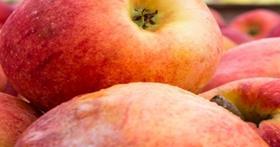
Swisscofel, Switzerland’s Fruit, Vegetable and Potato Trade Association, has rejected allegations made by Greenpeace over an alleged potential health risk posed by what the environmental pressure group described in a report as a “cocktail” of pesticide residues on apples grown in the country.
Defending its record, the association said it had performed over 1,500 laboratory tests on both domestic and imported fruit during the past year, and in doing so had established there was a minimal risk of residues exceeding the maximum permitted amounts – including just a single instance out of 120,000 of fresh apples where residues exceeded the legal limit, and only three cases where more than four different substances were found to be present.
Swisscofel chief executive Marc Wermelinger was particularly critical of Greenpeace’s report, which was entitled Pesticide Cocktails Found in Apples, accusing it of “deliberately fomenting fear, uncertainty and doubts” over checks on fruit carried out by the Swiss government and the industry itself.
”Fearmongers are bad advisers,” he commented. “Dessert apples are safe and healthy for children and adults, for young and old.'
In a press release, Swisscofel conceded that half of all samples contained “extremely small amounts” of pesticides, the reason being, it said, that modern methods of analysis will always find even the slightest traces.
But, it added, the amounts detected were so low that they posed no risk to consumers. “The legal maximums have a safety margin of between a hundred- and a thousand-fold. Therefore, even sporadically measured exceedance means no health hazard.”



